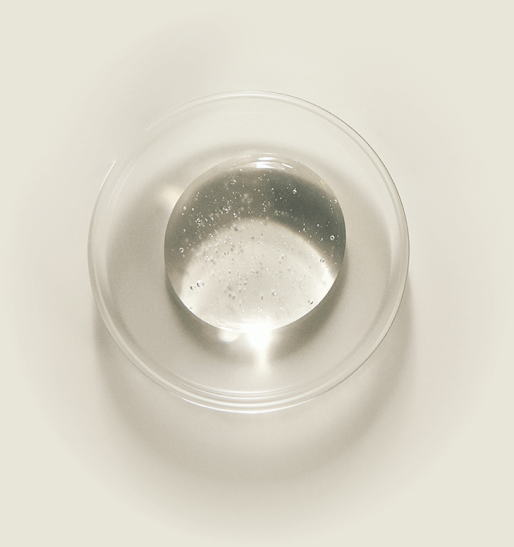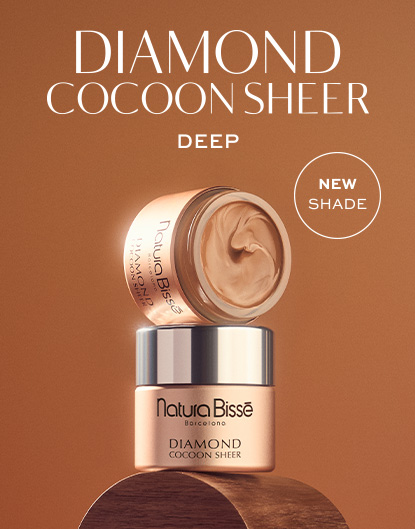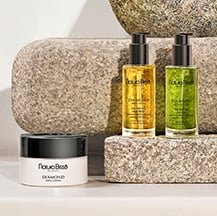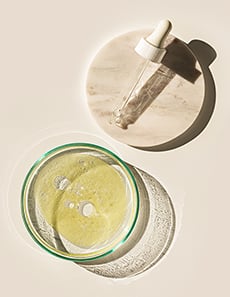Exfoliating, brightening, anti-aging... Do you know what glycolic acid can do for your skin? Don’t be put off by the ‘acid’ word: discover everything you need to know about this key skincare ingredient. Try it and transform your skin!

Glycolic acid 101
Glycolic acid is a member of the alpha-hydroxy acids family. Often referred to by their acronym, AHAs are a skincare stalwart. And glycolic acid is actually the smallest molecule in the entire group, allowing it to penetrate the epidermis more effectively.
Much more than an exfoliant
This key ingredient is primarily known as a chemical exfoliant, However, many people are unaware of the full range of benefits glycolic acid achieves:
→ Promotes a firmer appearance with less visible wrinkles1
→ Helps minimize the look of dark spots2
→ Balances excess oil, controls shine and purifies pores
Suitable for all skin types
Our glycolic acid skincare is formulated to be safe for all skin types. But it’s always best to start with a patch test behind the ear when you have sensitive skin. If this doesn’t produce any signs of skin discomfort, you’ve got the green light to include it in your beauty ritual!

How to include glycolic acid in your skincare routine
It all depends on the type of skin care and concentration you want to use. Some glycolic acid formulas can be used daily in your morning and/or evening beauty rituals, but we recommend always checking the instructions to ensure correct use.
Combine glycolic acid like a pro
Our beauty experts recommend using glycolic acid together with moisturizing ingredients, as its skin renewing properties can cause initial dryness. Exfoliating acids may make skin a little more sun-sensitive, so always remember to follow your skin care with sun protection!
Our best skincare products with glycolic acid
SOURCES:
Narda, M.; Trullas, C.; Brown, A.; Piquero-Casals, J.; Granger, C.; Fabbrocini, G. “Glycolic acid adjusted
to pH 4 stimulates collagen production and epidermal renewal without affecting levels of proinflammatory
TNF-alpha in human skin explants”. J. Cosmet. Dermatol. 2021, 20, 513–521. Available at:
onlinelibrary.wiley.com
Usuki A, Ohashi A, Sato H, Ochiai Y, Ichihashi M, Funasaka Y. “The inhibitory effect of glycolic acid and
lactic acid on melanin synthesis in melanoma cells”. Exp Dermatol. 2003;12 Suppl 2:43-50. doi:
10.1034/j.1600-0625.12.s2.7.x. PMID: 14756523. Available at: pubmed.ncbi.nlm.nih.gov


















